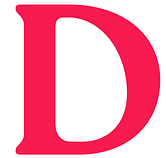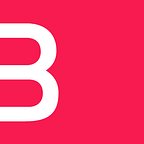Editor’s Note: For this interview, originally published in News Deeply, Jumana Farouky spoke to Jessica Horn, director of programs at the African Women’s Development Fund.
 Don’t talk to Jessica Horn about tie dye. The director of programs for the African Women’s Development Fund doesn’t have time for women’s advancement projects that lean on an age-old standby: artisanal crafts.
Don’t talk to Jessica Horn about tie dye. The director of programs for the African Women’s Development Fund doesn’t have time for women’s advancement projects that lean on an age-old standby: artisanal crafts.
“One of the most common post-conflict reconstruction initiatives in economic empowerment is teaching women to make soda soap and to do tie dye,” she says. “Now you’re flooding the market with sub-standard tie-dyed cloth. Who’s going to buy it?”
To become real economic players, equal to men, Horn says, women need a say in the decisions that affect them. Which is why every project the African Women’s Development Fund supports has to meet at least two goals: increased income generation and greater political participation.
At the Bond conference in London, News Deeply spoke to Horn about the relationship between economics and politics, and the trouble with “women’s work.”
Women’s Advancement Deeply: You say income-generation isn’t the be all and end all of development work. How does the African Women’s Development Fund change the traditional development model to promote women’s equality?
JH: There’s a liberation-era phrase that says, “Our struggle is not for bread or freedom, it’s for bread and freedom.” Across the African continent, there’s always been an understanding that economic transformation is a part of political and social transformation — they’re interrelated.
To invest in transforming African women’s realities is political activism. For us, the issue is just about how it’s done. For example, a lot of economic empowerment aid interventions are really small-scale, they’re engaging women in industries that are not particularly lucrative. They’re not looking at things like access to markets, women being able to get skills that help them raise their game, doing nonconformist trades. They also don’t take into account the aspirations of people who want something a little slicker.
It’s a very old-fashioned way of thinking, that a little bit of “women’s work” is good enough for African women.
Women’s Advancement Deeply: Do you have any examples of projects the AWDF has worked on that you consider particularly successful in bucking that trend?
JH: We funded a community-based organization in Ghana which processes cassava flour, or gari. It began as a group of women in a semi-rural area processing gari, but then they got together and started making a bit more money, getting a bit more prominence. Now the leader of the organization is part of the local government. Which means that she can now have a voice in any issues that emerge around gari processing, issues that affect the women’s ability to engage in this income generation, and other issues facing the women in the group.
Economic power is political power everywhere. In every country, in every context. And so the more you become active in the economy, the more you become a political player.
We’ve seen it in HIV initiatives as well. Many women are stigmatized and ostracized by their families for having HIV. But as soon as they start earning money, they become viable members of the family again, because they can now contribute to the household income. Which is kind of cynical, but it does show how economics is also power.
It’s not that by being involved in income-generation you automatically become empowered. You also have to have an element of discussion and conversation. What does it mean to be a woman in this society? How are you feeling? Are you happy with your husband?
It’s important to cover the whole spectrum, because otherwise we’re just plugging holes. The immediate is important — the bread is important — but the freedom is also important. And we have to do both.
Women’s Advancement Deeply: Is that something you ask for whenever you’re looking at funding a project?
JH: An intervention has to make good business sense. Even if it’s small-scale business, it has to actually make money for the women. And these types of projects don’t always do that.
But the intervention also has to have some level of rights impact. That could be that, as part of the initiative, the women are talking among themselves about whether they’re happy, do they have reproductive health needs, what do they think about their role in politics? Some kind of conversation about raising women’s consciousness and encouraging women to think about their role more politically.
Or it could be engaging in a series of initiatives that are about rights in the sector that the women work in or about increasing their political voices.
Women’s Advancement Deeply: In 2016, the fund launched a future trends analysis project. What has it revealed so far about the future of women’s work?
JH: We began it by doing a trends analysis based on already existing global development data on Africa. One of the challenges is the conceptualization of what is important. Development data links almost all of trends to their impact on GDP and that was a little problematic for us.
African women are situated for the most part in the informal sector. What’s bad about that is that it’s not recognized in economic measures, for the most part. That’s a whole lot of labor that’s just not accounted for. So women are made invisible and therefore we’re made to look like we’re not important as economic actors.
Working with the Ellen Johnson Sirleaf Market Women’s Fund we gathered research looking at market women’s realities in Ghana, Sierra Leone, Nigeria and Liberia. They face a lot of common problems in terms of harassment by authorities, lack of proper provisions in markets for child care, cleanliness.
But what the market women do with their money is tremendous. Some of the findings show that even if the market women themselves don’t have an education, with the earnings from their market trade they educate an enormous number — at least two, sometimes six, seven, eight people, even up to tertiary level. So when we’re looking at who’s funding education, we don’t think about a woman in a marketplace who is using the money she earns to push children in her family and her extended family all the way through to university degrees.
Women’s Advancement Deeply: One of the biggest obstacles to women’s economic advancement is ingrained patriarchal attitudes. Do you find that some women are averse to fighting for their rights because they’re just not used to the idea?
JH: Of course. That’s with any work where people are not already politicized. There are many initiatives, particularly community-based initiatives, where the technical side of the work, the women hand over to men. Who does their bookkeeping or their accounting? It will be a man. Who writes things for them? It’s a man.
We try to encourage women to build their capacities around issues like financial management. We fund women-led, women-run initiatives, and sometimes when we find men really involved then we ask serious questions about that, to start to change some of the assumptions that people are working with.
Changing consciousness is the beginning of any activism. We encourage people to have the conversations.
Nobody likes being oppressed, but sometimes resisting carries too much loss, stigma, so a lot of people fear that. But a lot of other people are really confident and pretty feisty — it’s about being able to meet that attitude and encourage it.
This article was originally published on News Deeply. Read the original article here. It is part of “Beyond Empowerment,” a collection of pieces that interrogate the dominant narratives around women’s economic advancement and propose alternative ways of thinking about gender equality. Read more in the series:
- The Formal Economy as Patriarchy: Vandana Shiva’s Radical Vision
- Afghan Women Will Only Be ‘Empowered’ When They Are Free From Violence
